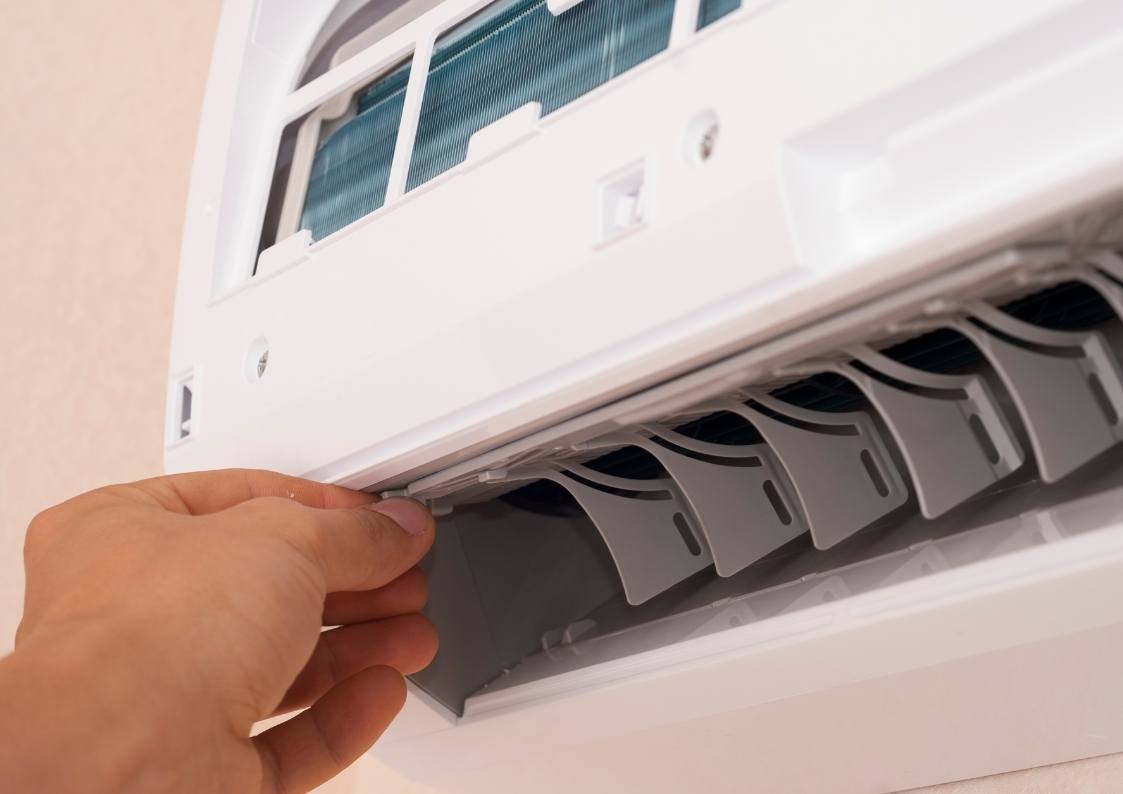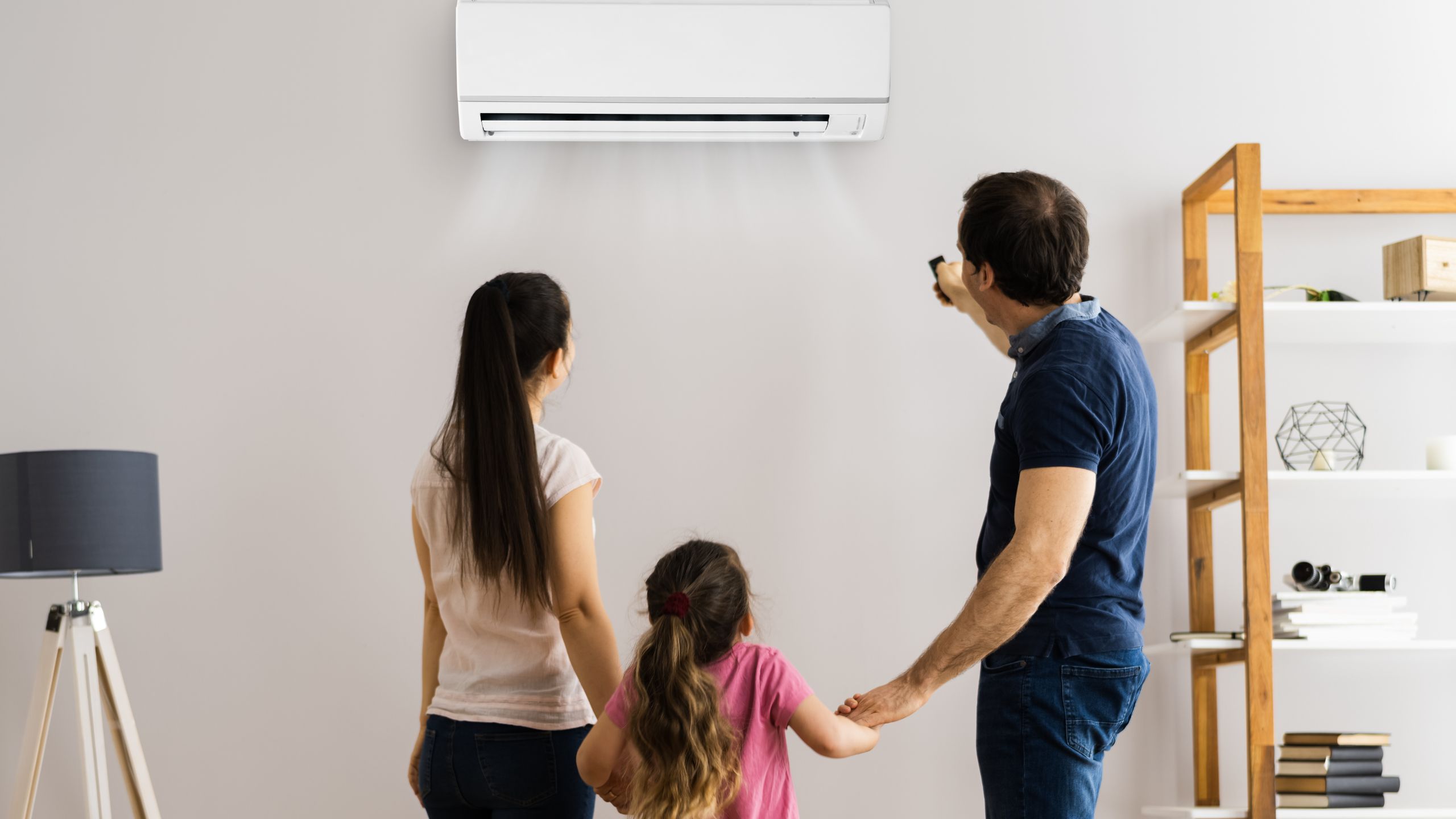From the dedicated experts at Direct Point Heating & Cooling – Melbourne
Your air conditioner may appear to function seamlessly, yet neglecting the cleaning of filters for an extended period can lead to a significant decrease in efficiency, potentially losing as much as 30% of your system's cooling capacity. This drop in performance can severely impact your comfort during the intense heat of the Australian summer.
Clogged filters serve as a primary culprit behind diminished airflow, inflated energy expenses, and subpar indoor air quality. While the process of cleaning filters may seem straightforward, there exist specific methodologies that must be followed to ensure optimal results.
This detailed guide aims to provide you with step-by-step instructions for effectively cleaning your filters, emphasise the importance of consistent maintenance, and highlight the signals that indicate when it is time to seek professional assistance for a thorough system clean.

Understand the Importance of Regular Filter Maintenance for Your Air Conditioner
The filters within your air conditioning system are crucial as they capture dust, allergens, and various other particles, preventing them from contaminating the air you breathe. However, as time passes, these filters can become clogged, leading to increased pressure on your system, reduced airflow, and the potential development of mould within the unit.
Regularly cleaning your filters is essential for:
- Enhancing overall system efficiency
- Lowering energy consumption
- Prolonging the lifespan of your air conditioning unit
- Improving indoor air quality for your household
Neglecting this vital maintenance task can result in elevated operational costs, more frequent breakdowns, and potentially hazardous air quality for your family members.
Follow These Steps to Effectively Clean Your Air Conditioner Filter
Step 1: Confirm the Unit is Powered Down and Disconnected
Before commencing the cleaning procedure, it is imperative to ensure that the power is entirely turned off. For wall-mounted split systems, turn off the power at the wall socket and disconnect the unit. If your system is hardwired, you must switch off the dedicated circuit at your switchboard to ensure your safety while cleaning.
Step 2: Gently Detach the Filter from the Unit
Carefully open the front panel of your indoor unit. Take special care to slide out the filter, ensuring that you do not bend or damage the mesh. Be mindful that some units may feature clips or latches that need to be released prior to filter removal.
Step 3: Clean the Filter Using Gentle Soap and Warm Water
Fill a basin or sink with lukewarm water and add a small quantity of mild detergent. Allow the filter to soak for several minutes, then utilise a soft brush to gently scrub away any accumulated dust or grime. Avoid employing harsh chemicals or vigorous scrubbing, as this could potentially damage your filter.
Step 4: Ensure the Filter is Completely Dry Before Reinstallation
Shake off any excess water and place the filter in a well-ventilated area to air dry, avoiding direct sunlight. It is crucial not to reinstall a damp filter, as moisture can encourage the growth of mould and bacteria within your air conditioning system.
Step 5: Reinsert the Filter and Assess the System's Performance
Once the filter is fully dry, carefully slide it back into its designated position, close the panel, and power your system back on. After reactivating it, check that the airflow is strong and steady, indicating that the cleaning process has been successful.
Is Regular DIY Cleaning Sufficient for Your Air Conditioner?
While routine filter cleaning is vital, it only addresses surface-level issues. Your air conditioning unit requires professional servicing to thoroughly eliminate:
- Accumulated dust and mould within the fan and coils
- Blockages in drain trays and internal components
- Efficiency reductions caused by dirty or malfunctioning elements
At Direct Point Heating & Cooling, we provide comprehensive system cleaning and servicing that surpasses basic maintenance. Our skilled technicians service both indoor and outdoor units, ensuring that every component of your system operates at peak efficiency.
How Frequently Should You Clean Your Air Conditioner Filters for Optimal Functionality?
We typically suggest adhering to the following cleaning schedule:
- For standard household usage: Every 2–3 months
- For households with allergies or pets: Monthly
- For commercial spaces or high-usage systems: Monthly or potentially more often
Additionally, we recommend scheduling professional servicing at least once a year to ensure your system functions efficiently and to mitigate the risk of costly breakdowns.

Why Opt for Professional Air Conditioner Cleaning Services?
A comprehensive air conditioning service includes:
- Thorough cleaning of all filters, fans, coils, and drain trays
- Checking refrigerant levels and evaluating overall system performance
- Inspecting and cleaning the outdoor compressor unit
- Identifying any signs of wear or potential failures early
Many individuals focus solely on cleaning their filters; however, the actual performance issues often lie deeper within the system. This is where our expertise becomes invaluable.
Arrange Your Comprehensive Air Conditioner Cleaning with Direct Point Today
While filter cleaning serves as a solid starting point, for sustained efficiency, energy conservation, and peace of mind, regular professional maintenance is essential.
We proudly service all major cooling systems across Melbourne, including:
- Wall-mounted split systems
- Multi-head units
- Ducted refrigerated systems
- Evaporative cooling systems
Contact Direct Point Heating & Cooling at 1300 170 961 or email us at [email protected] to schedule your service today.
The Article: Air Conditioner Filters: Why Cleaning Them is Essential first appeared on https://writebuff.com
The Article Air Conditioner Filters: The Importance of Regular Cleaning Was Found On https://limitsofstrategy.com





No responses yet